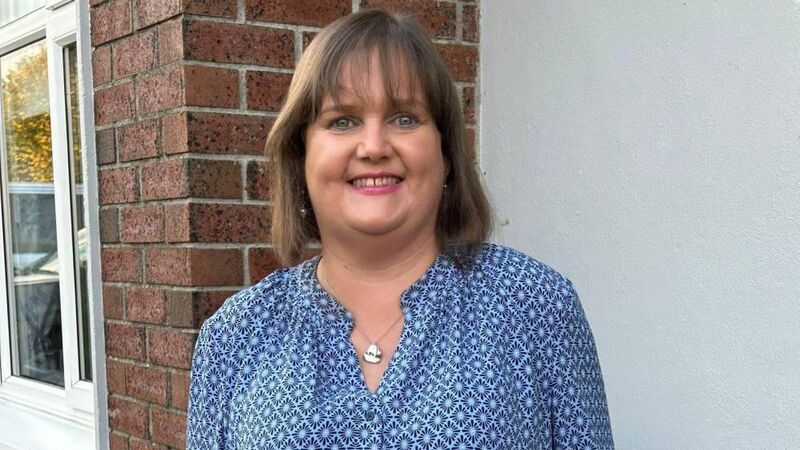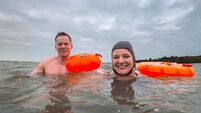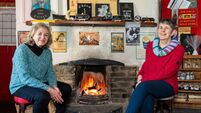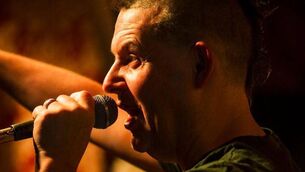Cork woman: 'Having a brain tumour puts life in perspective'

Caroline Kane Montague: “I want people to know that there is life after a brain tumour diagnosis”
It was June, 1984, and I was in school. I was running out to the yard when I tripped, and hit my head. I received a deep gash and so my mum was called to bring me to hospital.
They had to put four stitches in and did a routine skull x-ray, which showed something was not quite right. The family GP was alerted and it was back to hospital to have a visual field test.
This showed that I had no peripheral vision, which indicated something was not right at the back of my eyes.
I was referred to a neurosurgeon in Cork who told me that there was a tumour there – a craniopharyngioma – and that they needed to remove it as quickly as possible.
My parents were told three things could happen – I could be brain damaged, I might have a stroke and be left paralysed, or I might lose my sight.
Thankfully, none of these things happened, and while the tumour turned out to be benign, it had already damaged my pituitary gland, which produces stimulating hormones which are released to the major glands in the body responsible for many vital functions such as metabolism and growth.
In retrospect, my mum recalls that when she would cut my nails or my hair, that things weren’t growing back as quickly as for my siblings. I was also always bumping into things, tripping, and falling, and cuts would take a while to heal.
I was operated on that July. The surgical team did attempt to insert a shunt to drain fluid from my tumour, but this was rejected twice by my body and so it was decided to move forward without it.
I also experienced seizures when infection struck but, thankfully, these resolved with medication.
Today, I have a check-up once a year and see an endocrinologist to ensure that all is well and if my medications need to be changed.
I have had to receive various medications to make up for my damaged pituitary gland, including cortisone tablets and injections, levothyroxine for an underactive thyroid, as well as the female hormones oestrogen and progesterone.
I was also placed on growth hormone in my teens and then in my mid-20s.
All was well until May, 2000, when I returned home from a trip to Boston. I went to bed for a nap that day and, when I woke up, I couldn’t see out of my right eye. The next morning, I couldn’t see out of my other eye.
I went to hospital and an MRI confirmed the tumour was back.
I underwent a number of craniotomies over the following year as the tumour kept growing back – these have left me with lots of titanium plates in my head as surgeons have had to remove so much bone. I even lost my sense of smell as a result and it hasn’t come back since. I also had to undergo radiotherapy.
As for the future, I’m grateful for what I have and try not to fuss over small things.
Having a brain tumour puts life in perspective.
Before my operations in 2000/2001, I had been working as a Montessori assistant, so I decided to go back to college.
I was very proud to attain a degree in Montessori teaching and a first-class distinction, particularly as concentrating and reading is so hard for me, not to mention having to deal with vision impairment, in not having peripheral vision.
I want people to know that everyone is different and, for me and many others, there is life after a brain tumour diagnosis.
It drives me crackers in a soap opera when they kill someone off with a brain tumour. I would encourage people to join a support group and gain support from people who have been through it.
The same goes for family members, for whom it is quite tough. The carers have to look after themselves too.
ABOUT CAROLINE
Caroline is married to Julian. A member of the board of Brain Tumour Ireland, she works as a facilitator with its Cork support group. She enjoys walking, going to concerts, and line dancing!
Brain Tumour Ireland’s Cork Support Group
Brain Tumour Ireland’s Cork Support Group meets every month in a warm and friendly atmosphere.
We offer group support to patients and families affected by a brain tumour and provide information on services and facilities available.
We offer emotional support and strategies of coping. From time to time, we invite a variety of speakers to talk to us, including those from a health-related background.
There is also time for a cuppa tea/coffee and an informal chat.
If you, a family member or a friend has, or have had a brain tumour, Brain Tumour Ireland’s Cork Support Group may be of interest to you.
Meetings
When – First Wednesday of every month (except December & January)
Time – 7.30pm
Where – SMA Parish Centre, Wilton (across from Cork University Hospital)







 App?
App?


